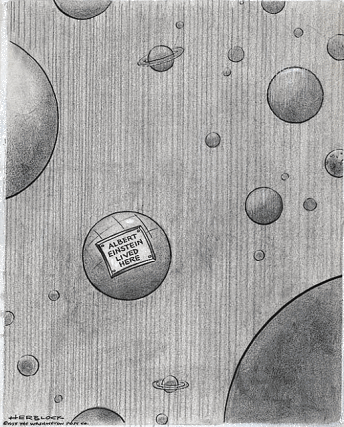|
|
|
|
|
|
|
News & Views item - April 2012 |
![]() Creativity and the Biological Sciences. (April 13, 2012)
Creativity and the Biological Sciences. (April 13, 2012)
 This
week's issue of Science features a series of articles on computational
biology in an effort to demonstrate "how mathematics and computer science are
being successfully harnessed to tease apart the complexity" of the network of
the many thousands of interactions of an organism's molecular complement.
This
week's issue of Science features a series of articles on computational
biology in an effort to demonstrate "how mathematics and computer science are
being successfully harnessed to tease apart the complexity" of the network of
the many thousands of interactions of an organism's molecular complement.
Science's editor-in-chief, Bruce Alberts, addresses the matter in his editorial "Creativity at the Interface". Here we reprint the last two paragraphs.
In biology as in other fields, the vast majority of possible investigations that could in principle be carried out are uninteresting, involving what Poincaré* might have called “useless combinations of prior knowledge,” and should be avoided. But how to choose? Should mentors spend more time helping students and postdoctoral fellows think broadly about research strategies, with the aim of preparing them to address the most important problems, whose solutions could fill critical gaps in our knowledge? Courses that explicitly analyze the decisions that outstanding scientists have made, emphasizing some paths not taken, could be productive here.
In biology, scientists are producing an enormous amount of data, but many creative new approaches will be needed to convert the data into the deep understandings of biological mechanisms needed for breakthroughs that benefit humanity. How to best train the next generation to meet this challenge is a fascinating question to contemplate, as we work to improve the effectiveness of the scientific enterprise and expand its role in the world.
___________________________________________
*H. Poincaré, Mathematical Creation, in J. R Newman, The World of Mathematics, vol. 4 (Dover Publications, Mineola, NY, 2004) (www.ias.ac.in/resonance/Feb2000/pdf/Feb2000Reflections.pdf).